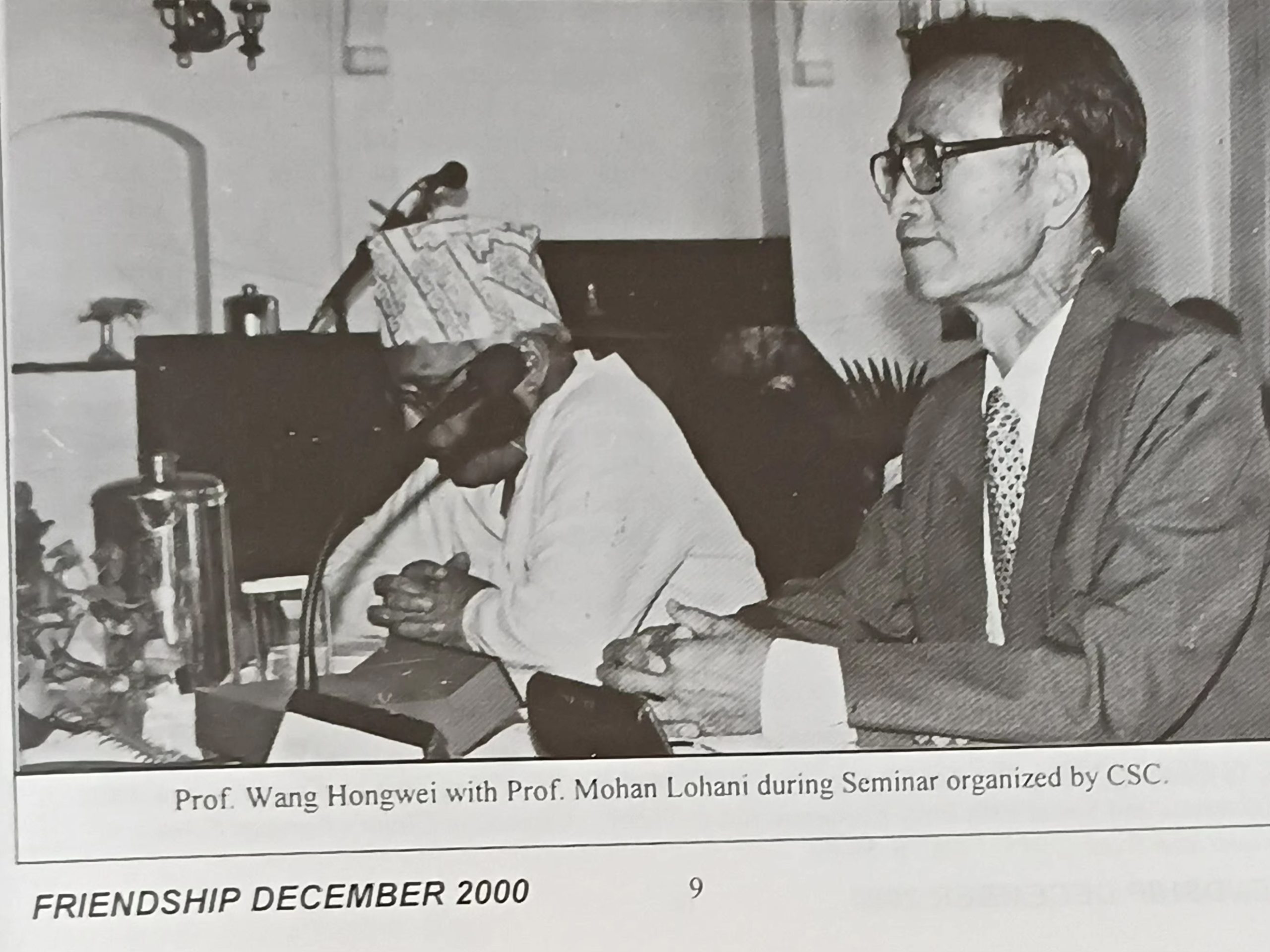
By Dr Janardan Subedi
Dear Kanak,
I read your latest article, and it made me think, reflect, and, at times, even laugh. We have known each other for decades—friends since our youth, witnesses to each other’s formative years, and observers of the turbulent social and political landscape that shaped our country. I have always respected your writing, for there are very few in Nepal who can articulate thoughts with the clarity, nuance, and rhythm that you command. Yet today, I feel compelled to address something that your words cannot reach: the moral and ethical void that marks your personal narrative, a truth that lingers behind the polished essays, the compelling social commentary, and the intellectual gravitas.
I remember the day you went missing while attempting the Annapurna Circuit alone. Many of us, experienced trekkers who had walked that trail multiple times under the guidance of our friend Padam Gurung, immediately foresaw danger. The Annapurna Circuit is not merely a trail; it is a crucible that tests endurance, judgment, and humility. While some of us would have advised you, the majority of us trusted your judgment—or at least hoped that your youth and audacity would carry you safely. You insisted on going alone, dismissing advice and experience alike. And so, you disappeared into the mountains.
The nation and your family waited, anxious and fearful, for any news. Your disappearance was no mere anecdote—it became a tense moment for those who understood the Himalayan terrain, the mercilessness of the elements, and the limits of human resilience. When the situation reached its gravest point, it was Padam, a Gurung, materially modest yet spiritually profound, who undertook the perilous journey to find you. With extraordinary courage, skill, and an unwavering commitment to human life, he located you and brought you back. That day, Kanak, you were given a second life—a life that was neither owed nor guaranteed, but bestowed by the courage and generosity of a man you could neither appreciate nor understand at the time.
Years later, the same Padam came to you with a humble request: to help educate his son. You categorically rejected him. Worse, the manner in which you humiliated him was so complete, so devoid of empathy, that it left witnesses stunned. How often, Kanak, does one encounter someone who saves one’s life, and yet is met with disdain, arrogance, and contempt? You speak and write of ethics, morality, and social responsibility, yet your actions in that moment were antithetical to the very principles you champion in your essays.
Padam later suffered a stroke. Today, he is partially paralyzed, confined to a small room, grappling with the loss of mobility and speech, yet still guided by the extraordinary resilience that defines his character. Kanak, the man who gave you a second life—how often have you visited him? How often have you acknowledged the debt of gratitude that your very existence demands? It is an uncomfortable truth that the wealth, the prestige, and the influence you have amassed cannot insulate you from moral failure. Padam’s spiritual wealth, by contrast, is incalculable, and yet it was dismissed, forgotten, and ignored by you.
This is not merely a personal grievance; it is emblematic of a broader ethical failure in society. The world often elevates intellect, material success, and social influence, while undervaluing gratitude, empathy, and the moral courage required to recognize the humanity in others. You, Kanak, occupy a unique position in Nepal: a man of immense influence, widely respected for his intellect and insight. Yet, your life story demonstrates a critical flaw: an inability to reconcile personal debt, moral responsibility, and spiritual humility with your public persona.
Consider the lessons embedded in that treacherous trek. Mountains, by their very nature, are indifferent arbiters of human folly. They demand respect, preparation, and reliance on those whose skills exceed one’s own. Padam exemplified this principle: he understood his limitations, he acted with courage, and he placed the well-being of another above his own safety. You, by contrast, acted on hubris, ignoring advice, guidance, and the collective wisdom of those who had navigated the same terrain. Your survival, in retrospect, was a fortuitous anomaly, a second life that ought to have inculcated humility. Yet, your treatment of Padam afterward indicates a failure to internalize that lesson.
We must also consider the broader sociocultural implications. Nepal is a nation where social hierarchies, wealth, and caste structures influence perception and opportunity. Padam Gurung, a man of humble means but boundless integrity, represents the ethical ideal: the capacity to act selflessly, to uphold the value of human life, and to maintain dignity in the face of material disadvantage. You, Kanak, represent the other extreme: immense material wealth and intellectual acumen paired with moral myopia. This juxtaposition is not merely anecdotal; it is instructive. It highlights a persistent societal tension: the conflation of social status with ethical worth, the misattribution of greatness to material success rather than to moral courage.
Let us examine this further. In contemporary Nepal, public figures are often judged by their ability to articulate, write, or comment on societal issues. You excel in this domain. Yet, true ethical stature is measured by action—by how one treats those who cannot benefit one materially, by how one acknowledges debts of life and kindness, by how one responds when circumstances place one in a position of gratitude. Padam exemplifies these virtues. You did not.
This narrative also challenges the conventional understanding of power. Material wealth, social influence, and public recognition are often mistaken for moral authority. Yet, true authority derives from ethical integrity—the consistent alignment of action with principle. Padam, despite his modest means, wielded immense moral authority. You, Kanak, despite wealth and intellect, fell short of this standard. The contrast is instructive: it is not position or privilege that defines greatness, but the capacity to recognize, respect, and honor the human contributions upon which one’s life depends.
Furthermore, this story raises questions about social justice and the ethics of recognition. In a society that frequently marginalizes those with fewer material resources, acts of heroism and sacrifice often go unnoticed. Padam’s bravery, humility, and moral courage were invisible to the wider public, yet they defined the trajectory of your life. In neglecting him, you perpetuate a societal injustice: the undervaluation of virtue that does not manifest as wealth, influence, or visibility.
Your essays, Kanak, often critique corruption, moral decay, and societal dysfunction. They are insightful, articulate, and occasionally provocative. Yet, they lack the grounding that comes from lived experience of gratitude, moral responsibility, and humility. To write of ethics while neglecting the debt owed to one’s savior is an incongruity that undermines both credibility and moral authority. The intellectual exercise of morality must be complemented by its practical enactment. Without this alignment, scholarship risks becoming performative rather than transformative.
Padam’s current condition—paralyzed in body yet resilient in spirit—serves as a poignant reminder of what true courage entails. It is not the courage of risk-taking for self-glory, but the courage to act selflessly, to place the well-being of another above one’s own, and to endure adversity without complaint. The mountain, the physical crucible of human frailty, was merely the first stage of a lifelong test—a test that you failed ethically, if not physically.
The lessons of this narrative extend beyond personal grievance. They are societal, instructive, and deeply relevant to Nepal’s ethical and political discourse. In public life, as in private, the capacity to recognize moral debt, to honor the contributions of others, and to act with humility defines the quality of leadership and the character of influence. Padam’s actions exemplify the ideal; your neglect exemplifies the failure. It is a failure that offers a cautionary tale for those who conflate intellect and material success with ethical authority.
In conclusion, Kanak, your life was given a second chance by a man of far less worldly power but far greater moral courage. That second life demanded acknowledgment, gratitude, and ethical reflection. Yet, decades later, your response remains deficient. Let this op-ed serve not merely as a critique, but as a record, a mirror, and a moral reckoning. The intellectual community, the public readership, and future generations may admire your scholarship, but they must also understand the human failing that accompanies it. True greatness encompasses not only intellect and insight, but also gratitude, humility, and the recognition of the debt owed to those who shape our lives in ways immeasurable by wealth, power, or status.
Padam Gurung gave you the gift of life. You, Kanak Dixit, failed to recognize it. And in that failure lies the most profound lesson of all: that moral courage, ethical responsibility, and spiritual wealth surpass all other forms of success.













Comments:
Leave a Reply